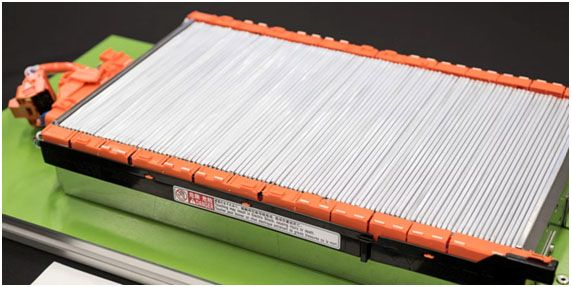Why is there so little said about this new technology? Simple. If they told you that this groundbreaking technology was imminent, you might well delay buying one of the conventional battery-powered cars. The new solid-state batteries will triple, at least, the range of the car and they can be charged in as little as ten minutes. I wrote about this last August, but since then there has been a lot of progress.
Listen to the experts
I quoted David Bailey, a professor of business economics at the University of Birmingham He said “If it is a genuine breakthrough, it could be a game-changer, very much the holy grail of battery vehicles.” It’s hard to dispute this. Range anxiety would be a thing of the past. Ten minutes to fully charge the batteries is almost as fast as filling up with petrol or diesel. This also means a much faster flow of vehicles at charging stations; three cars could fully charge in the same time as it currently takes to charge to 80%. Quite literally, this would change everything.
The Chinese will probably be first
It seems that the Chinese car manufacturer Nio could be the first to market. In July last year, Nio announced its solid-state batteries would soon be incorporated into its line of EVs, boasting extended driving ranges, faster charge times, and better overall efficiency for drivers. Although announced in 2021, these solid-state batteries: the first of their kind, will hit markets and have recently been added to the company’s user manuals, with the arrival of the 930 km (577+ mile) range option imminent. The car battery specialist WeLion has delivered its first semi-solid-state battery cells to Nio, and new EVs are coming.
The big names won’t be far behind
Other companies, like Toyota, Subaru, and Mazda, are working on incorporating solid-state technology into their fleets: but as of now, Nio is doing it first. Toyota will in all probability be second to market. They made a breakthrough in its development of solid-state batteries. The Japanese car maker reckons it won’t need to compromise on shorter battery life – a typical trade-off – when it puts its new solid-state batteries into mass production in 2027.
Nio don’t have a massive distribution network within Europe, but Toyota do. For sure there is a Toyota garage somewhere nearby. They may well get the first solid-state battery-powered cars into your showroom faster than anyone else. The other major manufacturers won’t want Toyota to dominate the EV market, they will have to get their solid-state models out fast.
The makers that have already announced that they are working on solid-state powered cars are Ford General Motors, Stellantis, Mercedes-Benz, BMW, Honda, Nissan, Porsche, Hyundai and Volkswagen. With such revolutionary technology, they can’t be left behind.
The EV battery revolution is not far away
Range anxiety is claimed to be the main reason for people to delay going electric. Add that to the slow charge times and you can see why solid-state batteries will change everything. Not only will they offer two or three times the range but will charge in about ten minutes. These batteries also have a far longer life, its expected that these batteries will last for at least twenty years.
I personally would not rush to buy an EV car, the change will be so dramatic. No wonder the major manufacturers are being very ‘coy’ about the progress they are making. They need to shift the existing technology before the next step into solid state.
Hotcars.com published this graph to illustrate the progress towards solid-state battery integration. According to their (and others) calculations, double, at least, range and a ten-minute charging time is only three to four years away.
If you are thinking of buying an electric-powered vehicle, do your homework before deciding. Patience may well pay off.
Resident in Portugal for 50 years, publishing and writing about Portugal since 1977. Privileged to have seen, firsthand, Portugal progress from a dictatorship (1974) into a stable democracy.

Paul Luckman
Disclaimer:
The views expressed on this page are those of the author and not of The Portugal News.
This article was originally published by a www.theportugalnews.com . Read the Original article here. .


